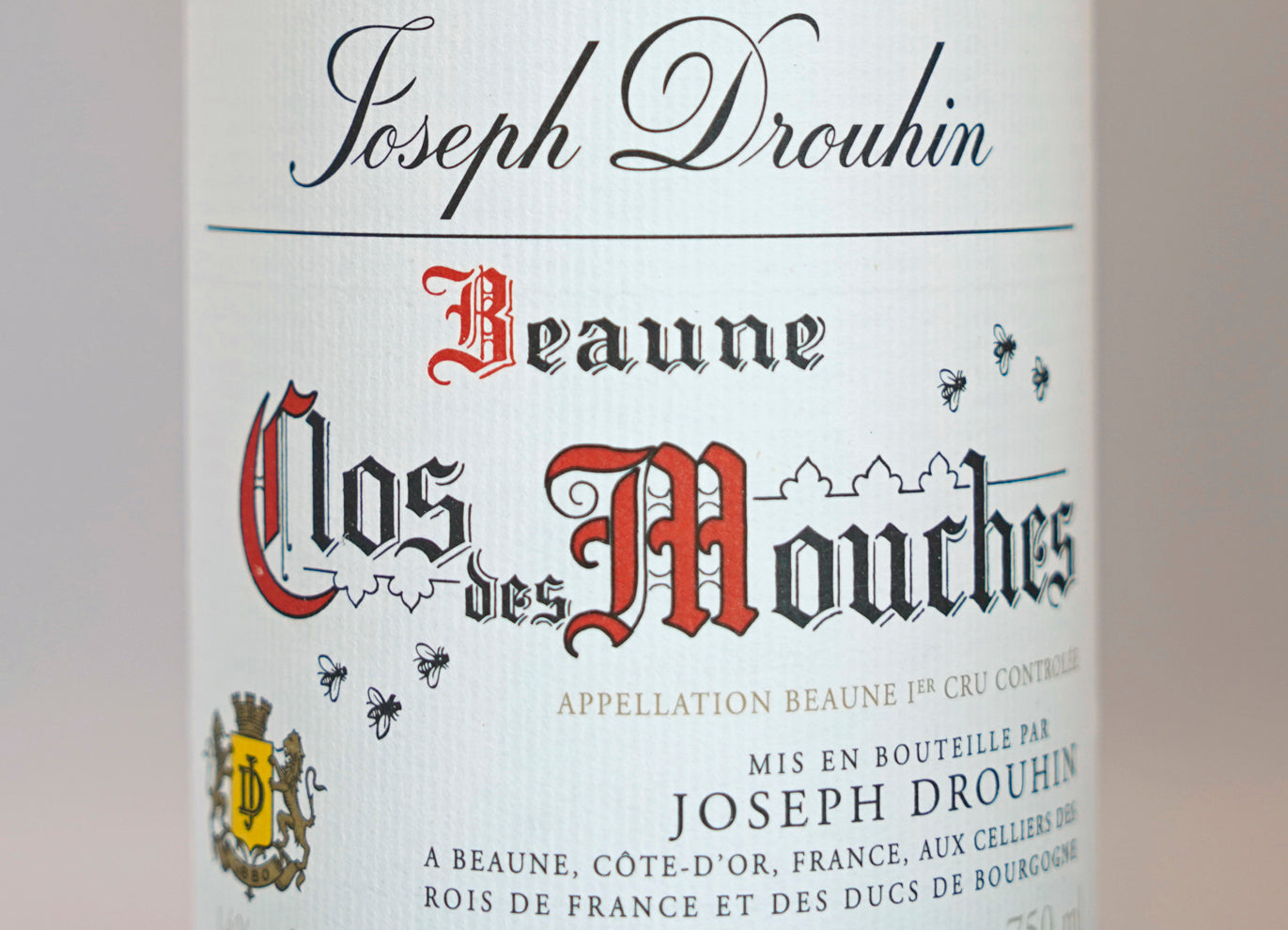Bon Wines
Joseph Drouhin Clos des Mouche Premier Cru 2018, Burgundy, France
Couldn't load pickup availability
History & tradition: the name "mouches" means flies. There were once bee-hives in this sun-drenched "clos" (vineyard enclosure); the bees in the local dialect were called "mouches à miel" (honey flies), hence the name Clos des Mouches. It is one of the first vineyards acquired by Maurice Drouhin (the founder's son) in the 1920's. With great determination, he bought 41 different parcels from 8 proprietors. It is planted equally in red and white grapes and both wines have achieved mythical status for the House of Joseph Drouhin.
Soil: clay and limestone. Rocky soil in the upper part of the vineyard. At the center, the soil is limestone and marl. This light composition is responsible for the great finesse of the wine.
Domaine area: 6.75 ha. (16.875 acres).
Average age of the vines: 39 years.
Vine stocks: "sélection massale" (propagation of new vine stocks from a number of selected vines) done at the Drouhin nursery; also clones of recognized quality.
Soil maintenance: compost of manure and white wood, sometimes guano (seabird manure used as fertilizer). Soil is ploughed either by tractor or by horse to manage spreading of weeds
Treatment: only authorized products for biological cultivation are used: infusions and macerations of plant materials, sulfur and copper, powdered rock. Natural predators are not eliminated.
Plantation density: from 10,000 to 12,500 stocks/ha in order to extract all possible nuances from the terroir and limit the production of each vine stock.
Pruning: Guyot.
Yield: we aim to keep our yields low, more in line with the previous regulation, around 20% less than allowed by the current law.
Sorting of the grapes: in the vineyard and at the cuverie (winery) if necessary.
Maceration:
Joseph Drouhin seeks total control of the process of extraction; extraction gives colour and substance to a wine but should never be detrimental to its finesse and typical character.
"Pigeage" (punching down of the cap during fermentation): once a day until half of fermentation is done; one pumping over (remontage) per day till the end of the fermentation.
Pressing: separation of free run juice from pressed juice.
Length: 14 to 18 months.
Origin of the wood: French oak forests (Tronçay in particular).
Weathering of the wood: Joseph Drouhin insists on total control of the weathering for a period of 3 years, one of the contributing elements to the elegance of the wine.
Follow-up: barrel by barrel.
Fining ("collage", to clarify the wine): light, after careful tasting.
Throughout the ageing process, decisions are taken only after careful tasting evaluation, barrel by barrel. The data obtained is then completed through technical analysis. As with every other Joseph Drouhin wine, absolute priority is given to the true expression of terroir and character of the vintage.


